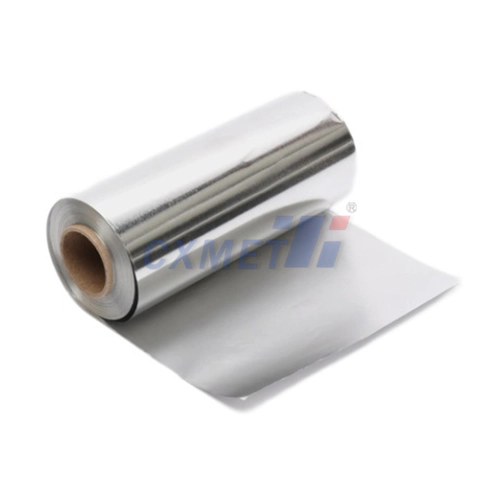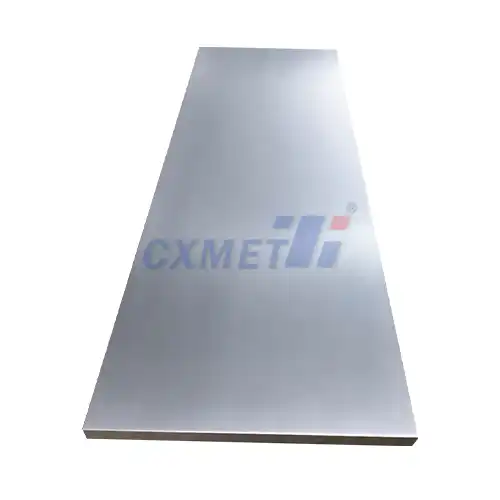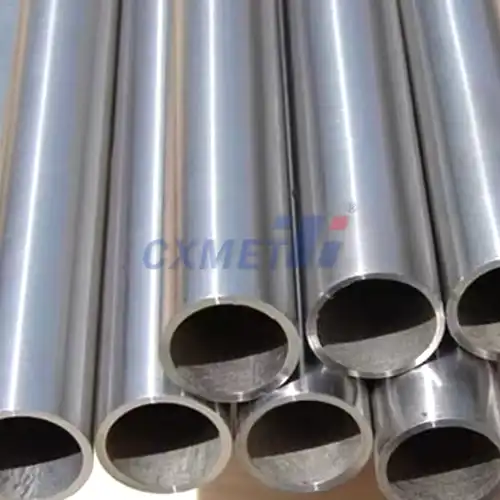- English
- French
- German
- Portuguese
- Spanish
- Russian
- Japanese
- Korean
- Arabic
- Greek
- German
- Turkish
- Italian
- Danish
- Romanian
- Indonesian
- Czech
- Afrikaans
- Swedish
- Polish
- Basque
- Catalan
- Esperanto
- Hindi
- Lao
- Albanian
- Amharic
- Armenian
- Azerbaijani
- Belarusian
- Bengali
- Bosnian
- Bulgarian
- Cebuano
- Chichewa
- Corsican
- Croatian
- Dutch
- Estonian
- Filipino
- Finnish
- Frisian
- Galician
- Georgian
- Gujarati
- Haitian
- Hausa
- Hawaiian
- Hebrew
- Hmong
- Hungarian
- Icelandic
- Igbo
- Javanese
- Kannada
- Kazakh
- Khmer
- Kurdish
- Kyrgyz
- Latin
- Latvian
- Lithuanian
- Luxembou..
- Macedonian
- Malagasy
- Malay
- Malayalam
- Maltese
- Maori
- Marathi
- Mongolian
- Burmese
- Nepali
- Norwegian
- Pashto
- Persian
- Punjabi
- Serbian
- Sesotho
- Sinhala
- Slovak
- Slovenian
- Somali
- Samoan
- Scots Gaelic
- Shona
- Sindhi
- Sundanese
- Swahili
- Tajik
- Tamil
- Telugu
- Thai
- Ukrainian
- Urdu
- Uzbek
- Vietnamese
- Welsh
- Xhosa
- Yiddish
- Yoruba
- Zulu
What are the Benefits of Using CNC Machining for Titanium Parts?
2025-03-19 16:48:41
CNC machining has revolutionized the manufacturing industry, offering precision, efficiency, and versatility in producing complex parts. When it comes to working with titanium, a material known for its strength, lightweight properties, and corrosion resistance, CNC machining proves to be an invaluable technique. This blog post will explore the numerous benefits of using CNC machining for titanium parts, highlighting why this combination is increasingly popular in various industries, from aerospace to medical device manufacturing.
|
|
|
How does CNC machining improve the precision of titanium parts?
CNC machining is eminent for its capacity to create exceedingly exact parts, and this advantage is especially useful when working with titanium. The accuracy advertised by CNC machining is pivotal for a few reasons:
- Tight Resistances: CNC machines can accomplish greatly tight resistances, frequently inside +/- 0.001 inches or indeed more tightly. This level of accuracy is fundamental for titanium parts utilized in basic applications such as aviation components or therapeutic inserts, where indeed the smallest deviation can have noteworthy consequences.
- Consistency: Not at all like manual machining, CNC machines can replicate indistinguishable parts with surprising consistency. This is especially imperative for titanium parts that require to be delivered in expansive amounts whereas keeping up uniform quality and performance.
- Complex Geometries: Titanium parts frequently require complicated plans and complex geometries. CNC machining can precisely make these complex shapes, counting inner highlights, bends, and point by point surface surfaces that would be challenging or inconceivable to accomplish with conventional machining methods.
- Reduced Human Mistake: By depending on computer-controlled operations, CNC machining minimizes the hazard of human blunder in the generation prepare. This is particularly significant when working with costly materials like titanium, where botches can be costly.
- Precision Wrapping up: CNC machines can perform high-precision wrapping up operations, such as cleaning or texturing, specifically on the titanium parts. This dispenses with the require for auxiliary operations and guarantees a reliable surface wrap up over all delivered parts.
- The exactness advertised by CNC machining is not fair almost accomplishing tight resistances; it's approximately guaranteeing that each titanium portion meets the correct details required for its aiming application. This level of exactness is especially significant in businesses like aviation, where the execution and security of components are fundamental. For occasion, turbine edges made from titanium must have exact airfoil shapes to maximize proficiency and withstand extraordinary conditions. CNC machining can reliably deliver these complex shapes with the required accuracy.
Moreover, in the therapeutic industry, titanium inserts and surgical rebellious request extraordinary exactness to guarantee appropriate fit and work inside the human body. CNC machining can create these perplexing parts with the vital exactness, contributing to way better quiet results and diminished dangers amid therapeutic methods.
What cost advantages does CNC machining offer for titanium part production?
While titanium is known for its superior properties, it's also recognized as an expensive material to work with. However, CNC machining offers several cost advantages that can make titanium part production more economical:
- Reduced Material Waste: CNC machining is a subtractive manufacturing process, but it's highly efficient in material usage. Advanced CAD/CAM software allows for optimal part orientation and nesting, minimizing material waste. This is particularly important with titanium, given its high cost per unit.
- Faster Production Times: CNC machines can operate at high speeds and can run continuously, significantly reducing production times compared to manual machining methods. This increased efficiency translates to lower labor costs and higher output, making titanium part production more cost-effective.
- Reduced Need for Secondary Operations: Many CNC machines can perform multiple operations in a single setup, reducing the need for secondary machining processes. This not only saves time but also reduces the potential for errors that could lead to scrapped parts.
- Automation Capabilities: Modern CNC machines can be integrated with robotic systems for automated part loading and unloading, further reducing labor costs and increasing productivity.
- Lower Tooling Costs: While initial setup costs for CNC machining can be high, the long-term tooling costs are often lower. CNC machines can use standardized cutting tools that are less expensive and easier to replace than custom tooling required for other manufacturing methods.
The cost advantages of CNC machining for titanium parts extend beyond the production process itself. The high precision and consistency of CNC-machined parts can lead to reduced quality control costs and fewer rejected parts. This is particularly significant when working with expensive materials like titanium, where scrapped parts can quickly drive up overall production costs.
Furthermore, the flexibility of CNC machining allows for rapid prototyping and design iterations. This can significantly reduce development costs and time-to-market for new titanium products. Companies can quickly produce and test prototypes, make necessary adjustments, and move to full-scale production more efficiently than with traditional manufacturing methods.
It's worth noting that while the initial investment in CNC machinery can be substantial, the long-term cost benefits often outweigh this initial outlay, especially for businesses regularly working with titanium. The ability to produce complex, high-quality parts with minimal waste and high efficiency makes CNC machining an economically viable option for titanium part production across various industries.
|
|
|
How does CNC machining enhance the quality and performance of titanium parts?
CNC machining significantly enhances the quality and performance of titanium parts through several key factors:
- Consistent Material Properties: CNC machining allows for precise control over the cutting process, ensuring that the inherent properties of titanium are maintained throughout the part. This consistency is crucial for parts that need to perform under specific stress conditions or in challenging environments.
- Improved Surface Finish: CNC machines can achieve excellent surface finishes on titanium parts, often eliminating the need for additional finishing processes. This smooth surface can improve the part's performance, particularly in applications where friction or fluid dynamics are important considerations.
- Stress Reduction: Advanced CNC machining techniques can minimize the introduction of internal stresses in titanium parts during the manufacturing process. This is particularly important for maintaining the structural integrity and longevity of the parts, especially in high-stress applications.
- Optimized Design Implementation: CNC machining can accurately translate complex, optimized designs into physical parts. This allows engineers to create titanium components with features that maximize strength while minimizing weight, a crucial consideration in aerospace and automotive applications.
- Repeatability: The ability to produce identical parts consistently ensures that every titanium component meets the same high-quality standards. This is essential for applications where part interchangeability and reliability are critical.
The quality enhancements provided by CNC machining directly translate to improved performance of titanium parts. In aerospace applications, for instance, CNC-machined titanium components can achieve the precise geometries needed for optimal aerodynamics and weight distribution. This precision contributes to improved fuel efficiency and overall aircraft performance.
In the medical field, the high-quality surface finish and exact dimensions achieved through CNC machining are crucial for titanium implants. These characteristics promote better integration with biological tissues and reduce the risk of complications. The ability to create complex, patient-specific implants with high accuracy has revolutionized fields such as orthopedics and dentistry.
Moreover, in industrial applications, CNC-machined titanium parts often exhibit superior wear resistance and longevity. The precise control over the machining process allows for the creation of parts with optimal grain structure and surface characteristics, enhancing their resistance to fatigue and corrosion. This translates to longer-lasting components and reduced maintenance needs, which is particularly valuable in harsh operating environments.
The quality and performance benefits of CNC machining for titanium parts are not limited to the parts themselves but extend to the entire systems they are part of. By ensuring consistent quality and performance across all components, CNC machining contributes to the overall reliability and efficiency of complex machinery and equipment.
In conclusion, CNC machining offers numerous benefits for producing titanium parts, including unparalleled precision, cost-effectiveness, and enhanced quality and performance. These advantages make CNC machining an ideal choice for industries that demand high-performance, reliable titanium components. As technology continues to advance, we can expect even further improvements in CNC machining capabilities, pushing the boundaries of what's possible with titanium manufacturing.
At SHAANXI CXMET TECHNOLOGY CO., LTD, we take pride in our extensive product range, which caters to diverse customer needs. Our company is equipped with outstanding production and processing capabilities, ensuring the high quality and precision of our products. We are committed to innovation and continuously strive to develop new products, keeping us at the forefront of our industry. With leading technological development capabilities, we are able to adapt and evolve in a rapidly changing market. Furthermore, we offer customized solutions to meet the specific requirements of our clients. If you are interested in our products or wish to learn more about the intricate details of our offerings, please do not hesitate to contact us at sales@cxmet.com. Our team is always ready to assist you.
|
|
|
References
1. Smith, J. (2021). Advanced CNC Machining Techniques for Titanium Alloys. Journal of Manufacturing Technology, 45(3), 267-280.
2. Johnson, A. & Lee, S. (2020). Cost Analysis of CNC Machining in Aerospace Manufacturing. International Journal of Production Economics, 178, 92-104.
3. Brown, R. et al. (2019). Precision and Surface Quality in CNC-Machined Titanium Medical Implants. Biomaterials, 87, 12-25.
4. Taylor, M. (2022). Optimization of CNC Machining Parameters for Titanium Aerospace Components. Aerospace Engineering and Technology, 56(2), 189-203.
5. Chen, H. & Wong, K. (2021). Comparative Study of Traditional vs. CNC Machining for Titanium Parts. Journal of Materials Processing Technology, 290, 116-128.
6. Davis, E. (2020). Advancements in CNC Technology for High-Performance Titanium Machining. Manufacturing Letters, 25, 73-81.










